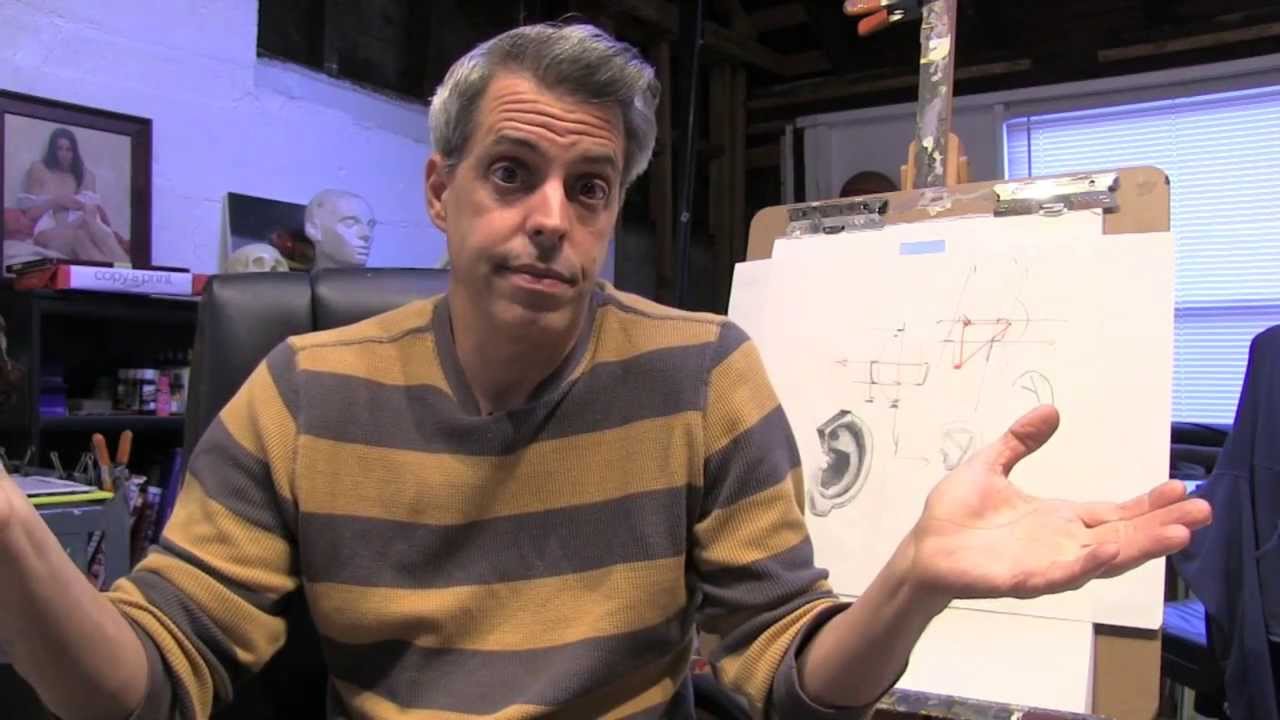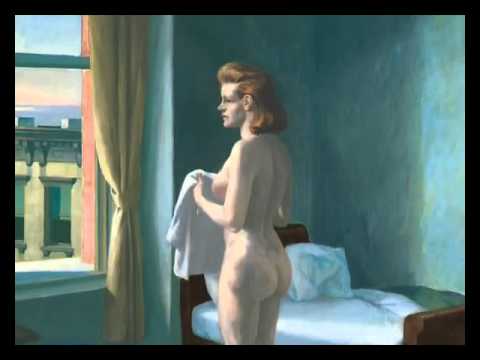Justin BUA
Is it fair to compare Mark Rothko’s paintings to diarrhea on canvas? You tell me. I’d love to hear your feedback.
www.justinbua.com
www.facebook.com/bua
www.twitter.com/justinbua
www.instagram.com/justinbua
www.pinterest.com/justinbua
www.youtube.com/buatv
Source



i dont know anything about rothko, but ur such a corny dweeb that i like him now.
I think people really want his work to mean something. Almost as if it may possibly separate them into another "class" or "level" of thinking and understanding. It's crap
I'm not taking a stance on like or not liking Rothko, and please don't assume I am drawn to his work or what may come off as a defense…My stance is on painting…. and I'm taking a stance on the comment of "truth" or lack there of in Rothko's work suggested by you. His work is 100% truthful about the material of paint.. and yes…. it is heavy within the conceptual clever side… (but with all artists you referenced the conceptual side of the work too is heavier then the image that is represented… so on that stance there is no difference between Rothko and those other artists)… again, I state, of the artists you mentioned all have the same weight in concept… however….. their concept was out side of the material used, and that material is of course paint. Rothko… purely simplifies painting to the color and the flat surface it is painted on. Is that really being clever or is that really being truthful?Again…. truthfulness about the material… when paint is manipulated to become representational of any object be it a tree, person, house car etc… the material is no longer being truthful.. Paint is manipulated and pushed to create a visual lie according to the material.. THIS is a major area that Rothko was exploring… and was of course exploring how the viewer can respond to color by it's pure state of being outside of that color being represented in an illusion of an object. Really….. As beautiful a Thomas Cole landscape painting may be and as much as it can "conceptually" transform me to desire and or imagine myself in the visual grander of the landscape; there is absolutely no way I can run all up in the painting like a some loony toons cartoon is there? And since none of us can… How exactly truthful is that Thomas Cole painting? Oh I know…. I can then just admire and be inspired on how well the artist has manipulated the paint for it to look atmospheric and guide my visual weight to some misted snow cap covered mountain with a running stream in the valley, aaaaannnd therefore because I recognize these images because they are in fact recognizable; a mountain is just a mountain right. So I guess I understand what the work is about. Oh shit… You mean it's not about those mountains just being mountains or me admiring how paint can be transformed to look so "real" though not being real to the material… BUT then I'm hit with No… that Thomas Cole has absolutely nothing to do with those elements mentioned… that painting is everything to do with Romanticism, and the sublime conflict of man vs. nature, and that dialog of man vs. nature is really about a dialog man vs the nature of man, and that fitting into a dialog of the insignificance of nature, and that fitting into everything that Neoclassicism isn't, and that fitting into a dialog because of these things mentioned this painting is more "Pure"… more "Truthful" but wait again…with all this that was just mentioned about the "dialog of" I'm now being told that all of this is about painting??? wtf?!. You mean to tell me it took all that for me truly understand what Cole's intentions were or what painting is when it isn't. Sounds to me I've got to be more "clever" to figure what this work is really about. In fact he challenges me to do so doesn't he? And with that elitist insight that the viewer just may not possess about his work. He at the same time, spits in the viewers face because their lack of clever intellect is not there to truly understand that those mountains just aren't mountains. Now I ask you…. How pure is that representational painting if I can't understand the true intention let alone the true non real image I'm looking at but I'm forced to learn that this IS painting?… and how successful is it really if I don't truly understand that intention…. I know, oh well at least I have those good looking snow caps right? Again… this is an example that can be applied to all the artists you mention including Rockwell. But…really, like looking at the Rothko… most people aren't going to take the time to look into all those true intentions of the work solely because they see something recognizable therefore they must know what it's about. Now, again how truthful is that in the context OF painting? Because honestly, that doesn't sound too truthful. Getting back to Rothko he eliminates the trickery of color in a nonreal sky, tree, leaf, figure, etc… and takes it back to just color and the color of the paint,,, NOT that color of the paint in a fake tree. He 100% is truthful about the paint. Now when you have a discussion of how long it takes to manipulate the material to look representational… or the color theory in the within the guise of representation… the representation takes away from flat discussion of color theory. This is not painting… this is a visual discussion of being technically clever and relying on the crutch of a recognizable image, which is also a dialog that has been going in art since what the late 1500's…. and how original is that? Not very…. Irregardless of original or not the discussion of technique seems to be the issue and the discussion of painting because again in reality he is painting and being truthful about it. And he like other minimalists or abstract expressionists…or color theorists pull the rug out from underneath the "tradition" and challenge a sincere dialog about solely paint as opposed to some lofty elitist insight on the knowledge of the classics. Sounds pretty rebellious to me… (Graffiti artists anyone one?…for others reading that last statement don't run away with that statement, it's a statement on the significance of rebellion…. though I do recall when graffiti art was considered not art… moving on…) My suggestion… and this is only a suggestion without judgement… I mean you did ask to help you to understand….. My suggestion is take Rothko out of Rothko and fit him instead into the context of the history of painting in western culture. Your reference to Picasso is a good example of where I'm going with this. You were able to understand and appreciate Picasso's development into abstraction from representational work and understand that lineage. Take Rothko and EVERY other other artist before him out of themselves and put their work instead in the lineage of painting and its evolution….. you may find the development to him to be easier to understand his significance and his take on the pureness of painting(especially with what I've stated here….but you're probably too clever to do otherwise.)
I agree with Bua on this one. However I do like Polluck. I liked his system of application and I feel like his with its visually appealing. But you're right, cleverist is a good description.
You just nailed it on the head, my thoughts exactly. As an artist I feel cheated when paintings like Rothko sell for millions when a 2 year old paints a better painting. Thanks for sharing your thoughts my brother, and keep painting your real artistic talents.
Great vid lol
I've seen Kindergartners in my school do what he did. You are right. I want to have effort hanging on my walls, not a do it yourself.
Bwhahahahhahaa!!! Diarrhea on a canvas lol. I love it. I couldn't stop laughing the whole time I watched this. Right on bro. Preach. 😭😂😭😂
BUA for President!
BUA for President. Keep these videos coming. I'd live to hear your take on Basquait.